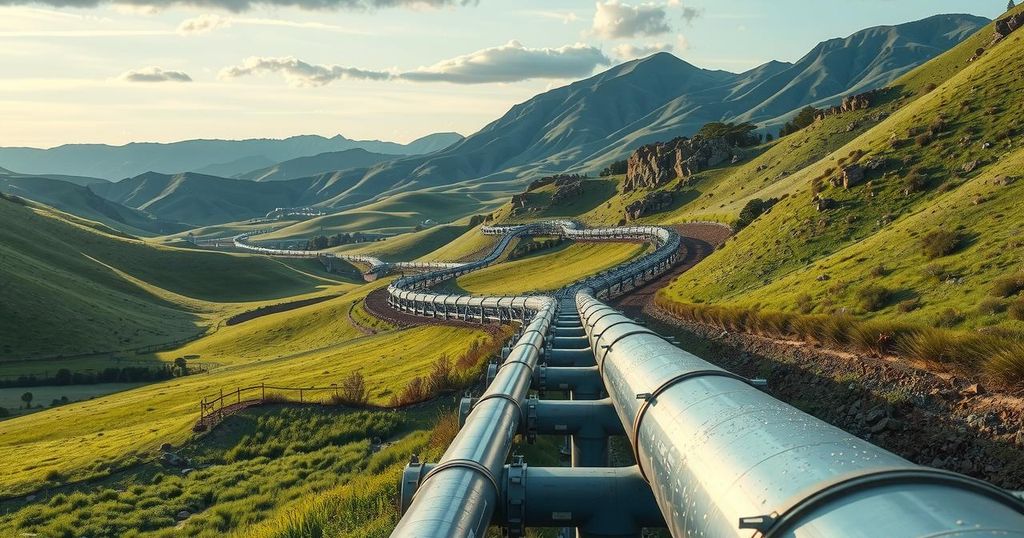Argentina has launched its first natural gas exports to Brazil through Bolivia’s YPFB infrastructure, following a cross-border agreement. The Brazil-Bolivia Gas Pipeline expands its capacity to meet demand. YPFB reports stabilized fuel supply in Bolivia’s main cities, countering rumors about operational challenges. This collaboration enhances energy sector prospects for both Argentina and Bolivia.
Argentina has commenced its first export of natural gas to Brazil via the infrastructure of Yacimientos Petrolíferos Fiscales Bolivianos (YPFB). TotalEnergies is responsible for transporting gas from the Vaca Muerta field in Neuquén Province to Matrix Energy, utilizing Argentina’s TGN and TGS pipelines to Salta. Subsequently, the gas is routed through Bolivia’s YPFB network, specifically the Madrejones pipeline, to reach Brazil, following an agreement finalized in late 2024.
The Brazil-Bolivia Gas Pipeline, known as Gasbol, currently operates at a capacity of 10 million cubic meters per day but is set to expand its capacity to 30 million cubic meters over five years to satisfy Brazil’s industrial demand. This transition has allowed Bolivia to shift from pipeline exporting to leasing, thereby generating revenue while bolstering its status as a prominent energy conduit in the Southern Cone. Argentina’s move is anticipated to rejuvenate its energy sector, leading to future hydrocarbon investments, with initial shipments established at 2 million cubic meters daily.
In another related development, YPFB President Armin Dorgathen announced that the supply of gasoline and diesel in Bolivia’s major cities, including Santa Cruz, La Paz, and Cochabamba, has stabilized, effectively reducing fuel queues. Presently, YPFB is distributing over 7.7 million liters of diesel and 8 million liters of gasoline daily, with additional shipments expected at the Chilean port of Arica. Dorgathen refuted rumors about fleeing the country or inflating fuel import costs, emphasizing that current prices are aligned with international standards and reaffirming the importance of Bolivia’s fuel subsidy.
Dorgathen also noted that gas previously exported to Argentina is now redirected to Brazil, which presents a more competitive pricing environment and increased demand. He highlighted the stabilization of fuel supply in Bolivia’s key cities, stating, “In Santa Cruz and La Paz, the queues to fill up gasoline have practically disappeared.” He further detailed the arrival of additional shipments, affirming, “We already have five ready to unload at the port.”
In summary, Argentina has initiated natural gas exports to Brazil through Bolivia, enhancing energy cooperation in the region. The Brazil-Bolivia Gas Pipeline aims to expand its capacity to meet increased demand, while Bolivia successfully stabilizes its fuel supply. YPFB’s leadership emphasizes transparency regarding fuel pricing and maintains its commitment to supporting the regional energy market. This development not only rejuvenates Argentina’s energy sector but also strengthens Bolivia’s role as a crucial energy intermediary.
Original Source: en.mercopress.com




